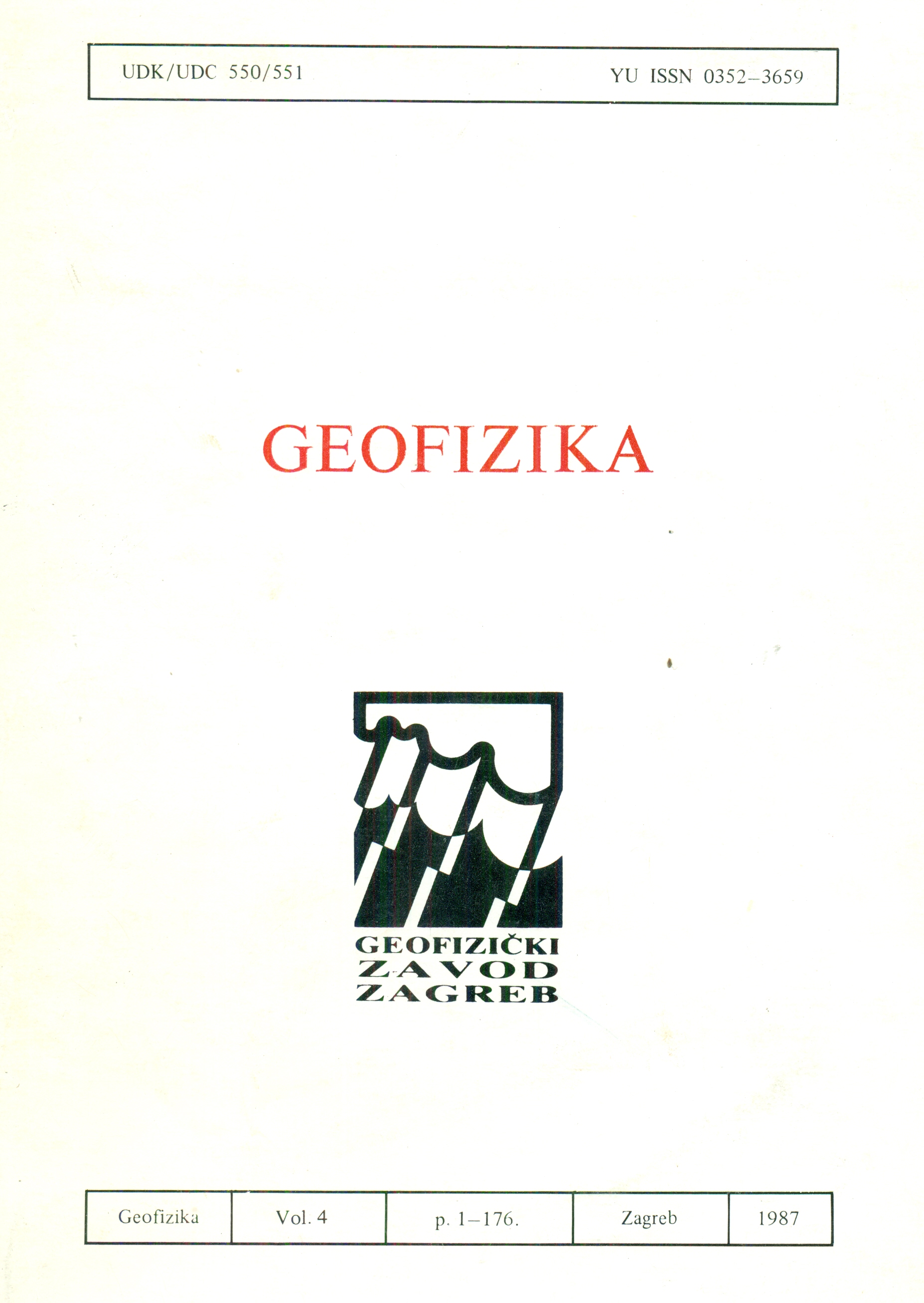Mean monthly wind hodographs in the low troposphere in Zagreb
Abstract
The analyses of mean monthly vertical wind profiles in the layer from the ground to 3 km height are shown, on the basis of radiosounding data in Zagreb-Maksimir, at 00 and 12 GMT, 1972 – 1981. It is shown that a daily variation of vector mean wind extends throughout the considered layer, with more southerly wind direction in the daytime term. However, the local effects, which are very pronounced in the daily variation of speed and direction of the slope and valley winds, are confined to a shallow surface layer. The upper level daily wind variation is attached to the influence of mesoscale mountain circulation in the Alpine region, which, by the entrainment processes, contributes to the low steadiness of the boundary layer winds. These processes cannot be followed directly in the monthly mean vertical wind structure, since the mean wind vectors represent the frequencies of particular wind speed and direction in the individual months and seasons. These frequencies, however reflect the changes in large scale atmospheric circulation and its anomalies, which are responsible for both mesoscale mountain circulation and the behaviour of local boundary layer wind structure.
Due to the known variation of the large scale flow pattern and their influence on anomalous monthly mean wind hodographs, one could expect that the selected 10-years data sampling in not sufficient representative for the long-term, climatological, wind structure in the lower troposphere of Zagreb. An example for the month of October shows, on the contrary, that the main wind characteristics in the middle (850 hPa) and the top (700 hPa) of the considered layer remain unchanged if the period is extended to a 30-year set of data.
Downloads
Published
Issue
Section
License
Copyright (c) 2021 Geofizika journal

This work is licensed under a Creative Commons Attribution-NonCommercial 4.0 International License.

